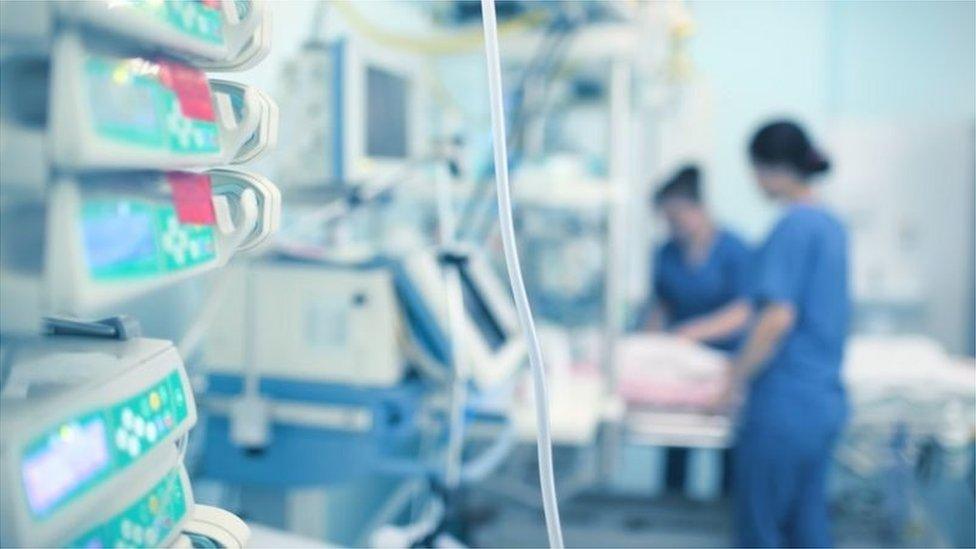Covid bereavement: Call for greater support for those left behind
- Published
"I knew I was going in hospital to say goodbye to my husband"
"They called me at midnight and I knew I was going in just to say goodbye."
When Andrea Williams arrived at her husband's hospital bedside, she played their wedding song and told him it was time to rest.
Mark was 58 years old when he died in April, just weeks after contracting Covid-19.
Andrea shared her story as families called for greater access to bereavement support for those who have lost loved ones in the pandemic.
To date more than 2,000 people are known to have died with coronavirus in Wales, according to Public Health Wales figures.
Many who have lost loved ones say they were unable to say goodbye due to lockdown restrictions, while doctors have spoken of comforting patients whose relatives have been unable to be at their bedsides when they died.
Now, a virtual group has been set up for those grieving to support each other.
The Covid-19 Families Wales' Group, external is calling for greater access to bereavement counselling during the pandemic.
The Welsh Government said it had given £900,000 to hospices and services to help those who had lost loved ones during this time.
'They know what I'm going through'
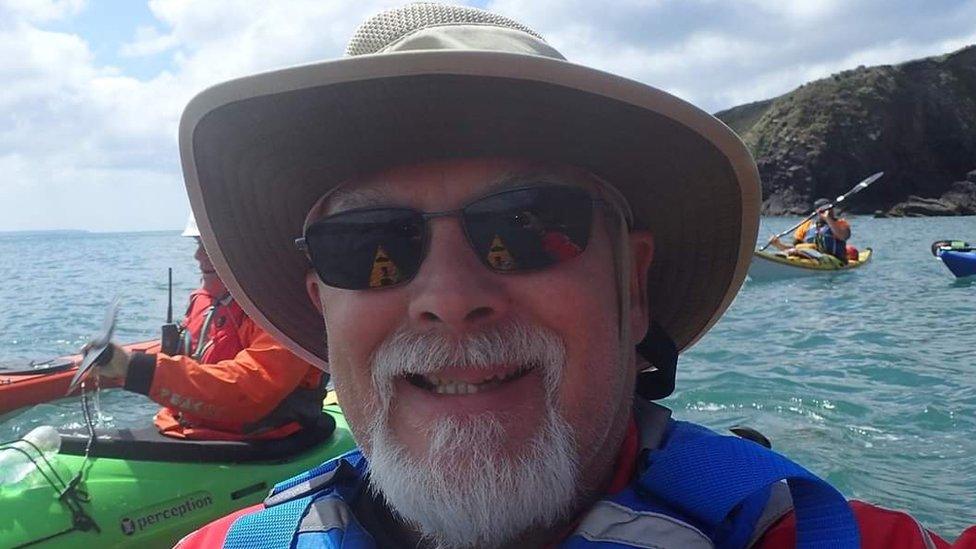
Mark Williams was fit and healthy and loved kayaking
"I find it easier if I am talking to someone who also lost their husband," said Andrea.
The couple had only been married for two years when Mark, a lecturer, from Sully in the Vale of Glamorgan, died on 25 April, after being on a ventilator at the University Hospital of Wales, Cardiff.
"I played our wedding music and just said goodbye. I told him it was time to rest," she said, remembering the moment he died.
Andrea said she knew she would not be judged on the group when she discussed things like taking her husband's ashes to bed with her when she could not sleep.
"They know exactly what I am going through."
'We weren't there for him'
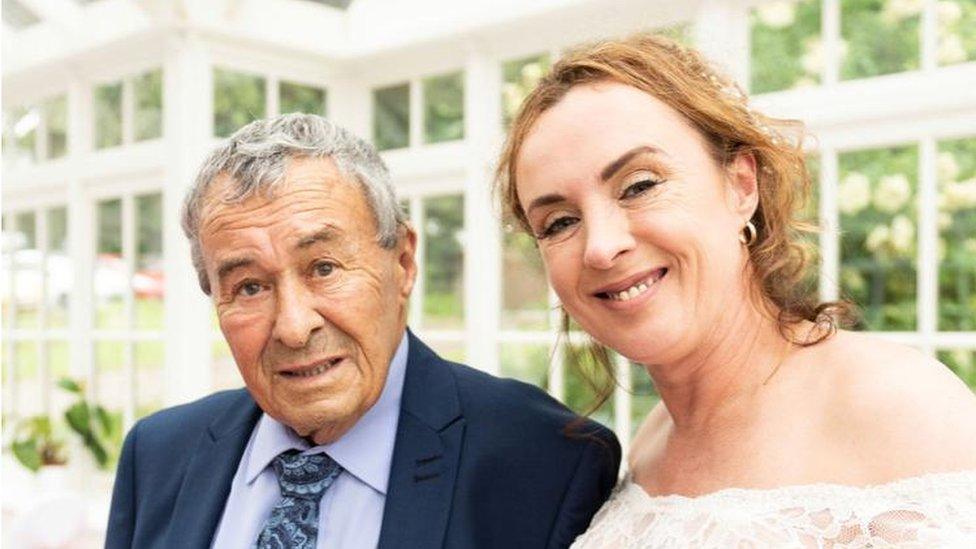
Samantha Andrews-Pierce with her father Terry on her wedding day
When Terry Andrews, a retired psychiatric nurse, died at Ysbyty Glan Clwyd, Denbighshire, in April, his family was unable to be at his bedside.
The 75-year-old had been ill for some time and on haemodialysis in hospital, but died after testing positive for coronavirus.
"It just goes through my head that we weren't there for him," his daughter Samantha Andrews-Pierce said.
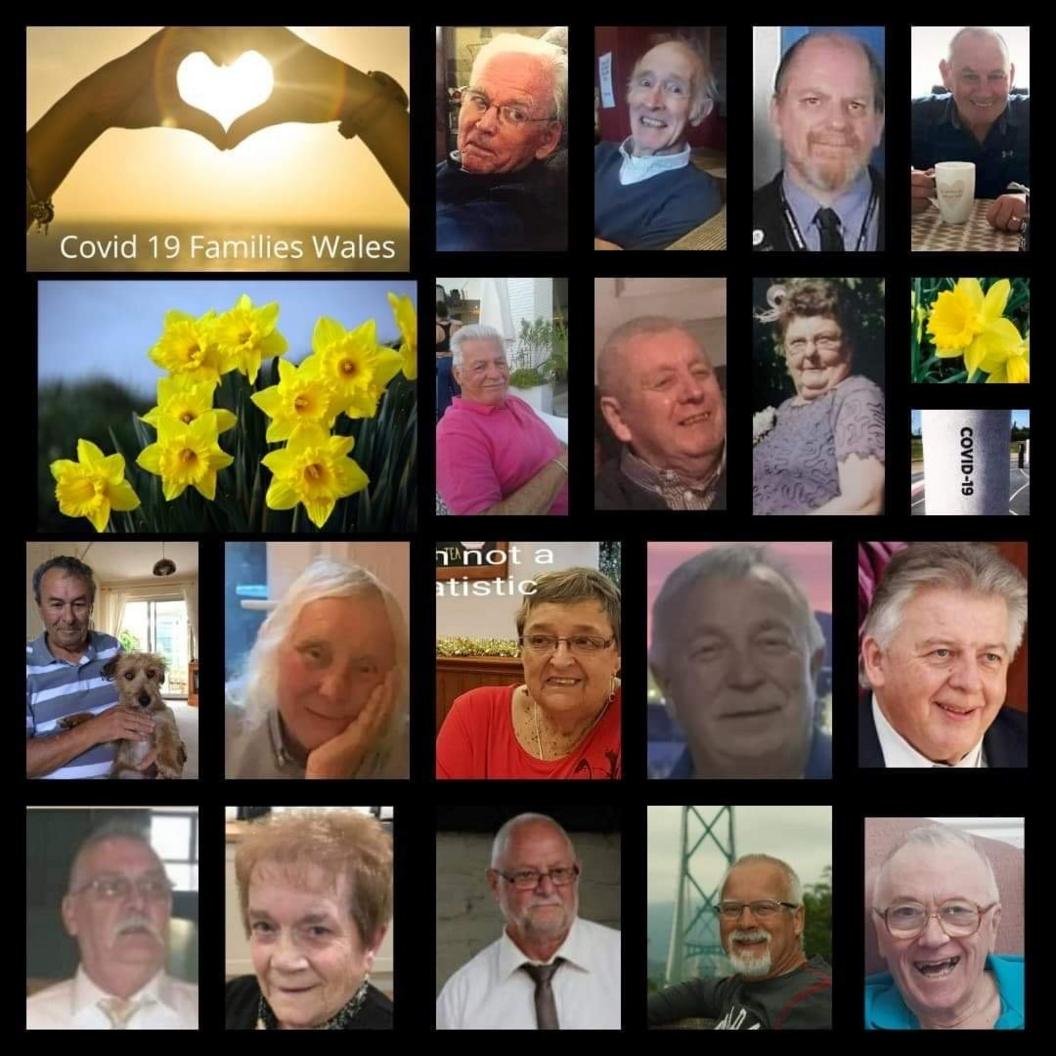
The group wants to get better support for those who have lost loved ones during the pandemic

Samantha, from Denbigh, said she had found comfort in the group and had struggled with not being able to say goodbye to her father properly due to restrictions.
"We haven't been able to bury him," she said.
"We haven't had a wake, which I think is a massive thing when you're grieving. We had 10 at the funeral [but] we weren't allowed to sit with our mum."
'I try to put a brave face on'
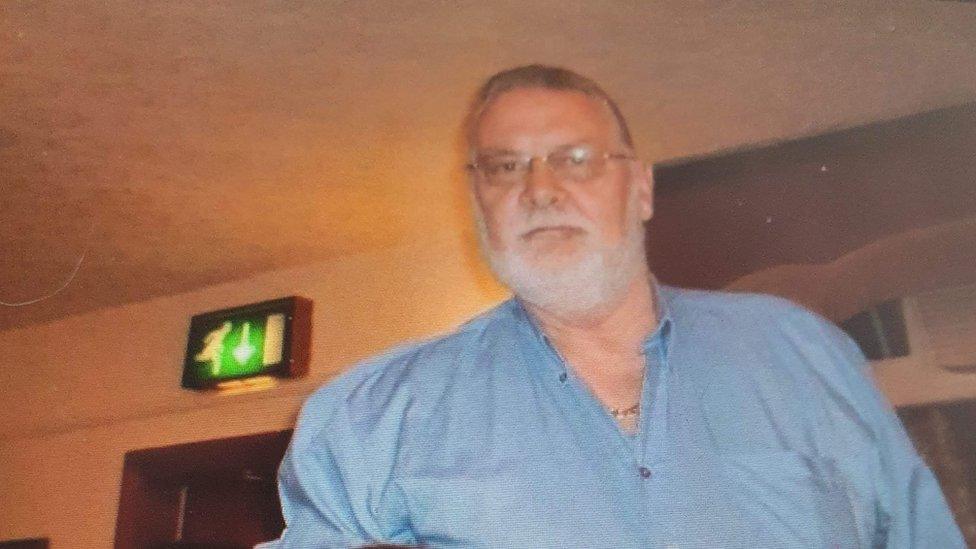
Dennis Kierle died earlier this year after contracting coronavirus
Mandy Howells, from Pentre in Rhondda Cynon Taf, said the death of her father, 79-year-old Dennis Kierle, in April still "didn't seem real".
"I try to put a brave face on when I'm with my mum," she said.
"I feel that, on this group... they know exactly what you are feeling and thinking because they are going through it themselves.
"It's helped me - emotionally."
'Counselling is important'
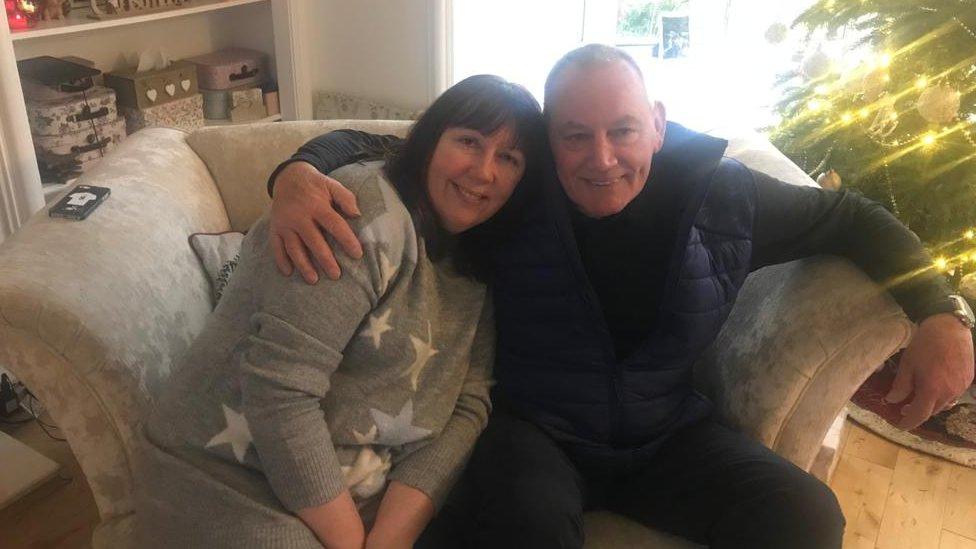
Nicola and her father John, who she described as "energetic and enthusiastic", in happier times
The group is now trying to get members access to counselling, but Nicola Thomas from Swansea said there was a waiting list for support.
Her father, John Bennett, a project manager for Tata Steel, died aged 69 after contracting the virus in April.
"In relation to bereavement, there is a feeling that the GPs tend to offer you anti-depressants or diazepam to help you sleep, but counselling is important as well," she said.
"The effects on the bereaved doesn't get talked about very much on the news.
"As soon as we are able, we want to get together as a group - even if it's just a coffee and share stories. We can gain something from that kind of friendship.
"We've got a common aim that we want our relatives remembered."
The Welsh Government said it had provided £900,000 of support to hospices and bereavement providers to increase the level of support.
It comes after an announcement earlier this year of an additional £1m for bereavement services from April next year.
"We send our heartfelt condolences to everyone who has lost a loved one to this cruel virus," a spokesman said.
"We are also developing a national bereavement framework to support the establishment of clear referral pathways, bereavement standards and a directory of available bereavement provision."
- Published26 September 2020
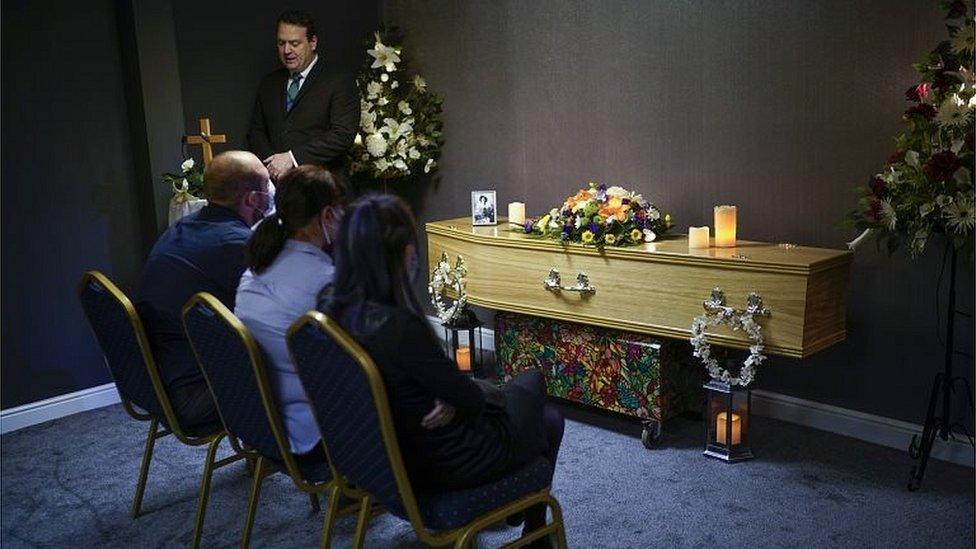
- Published27 March 2020
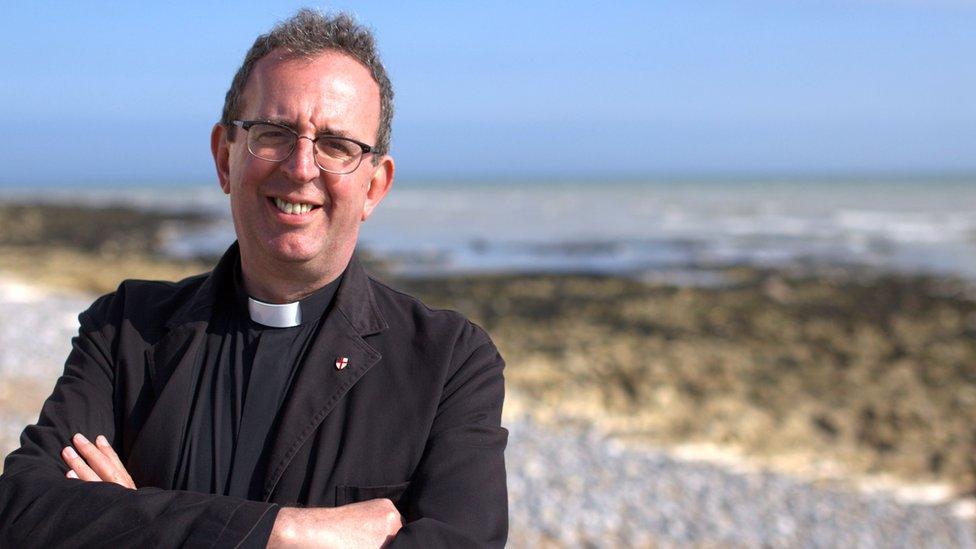
- Published2 July 2020
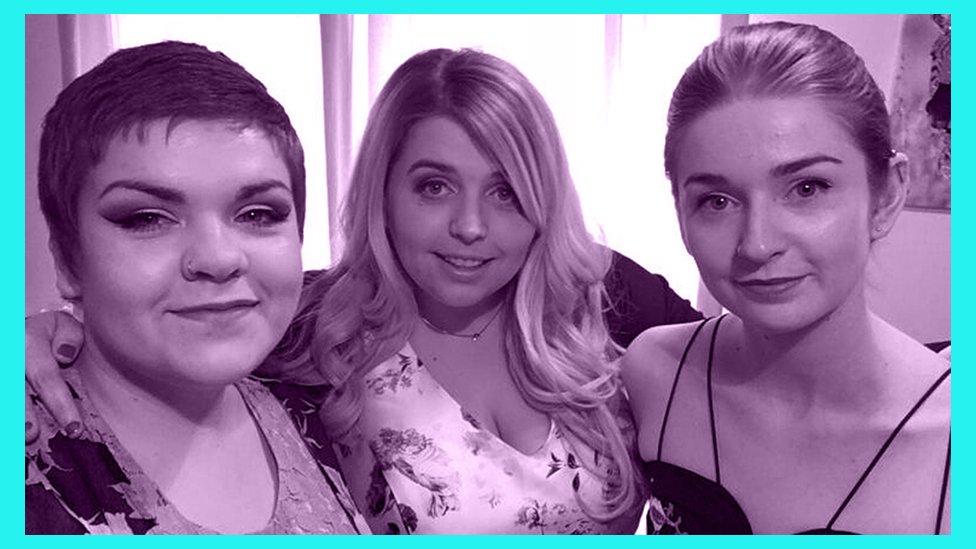
- Published5 November 2020
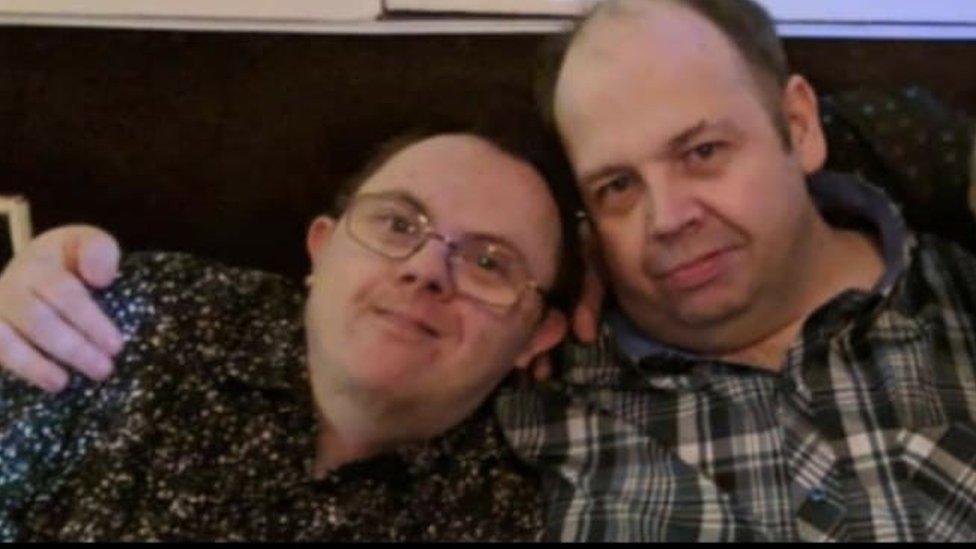
- Published26 November 2020
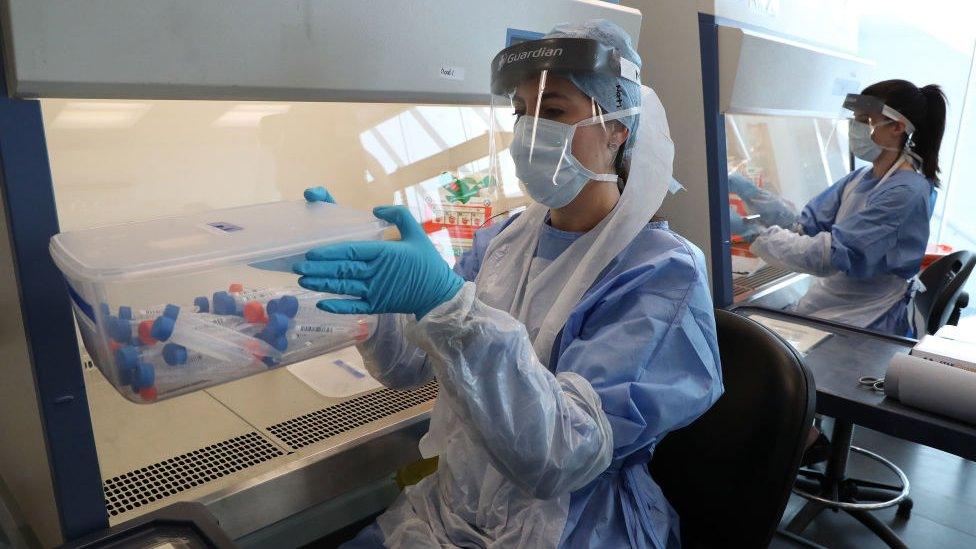
- Published12 November 2020
